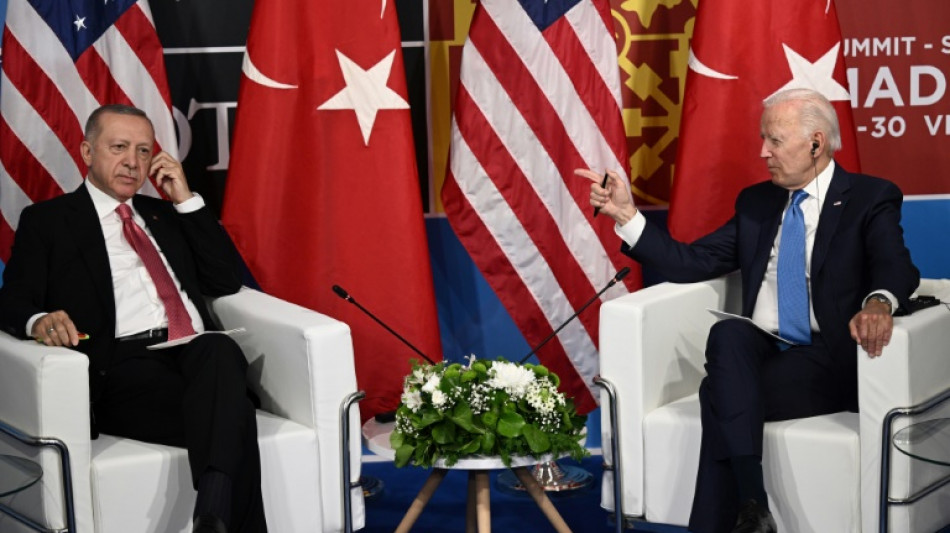

Turkey cuts access to US, German public broadcasters
Turkey has cut access to public broadcasters from Germany and the United States, threatening to stoke new diplomatic tensions during Russia's invasion of Ukraine.
An Ankara court banned access to Deutsche Welle and Voice of America on Thursday night, after both failed to apply for local broadcasting licences required by regulations introduced this year.
The two argued that a local licence issued by Turkey's RTUK media regulator would infringe on their independence and allow Ankara to censor their content.
Rights advocates said Turkey's decision underscores erosion to freedom of expression in the run up to next year's general election, the toughest of President Recep Tayyip Erdogan's two-decade rule.
It also threatens to spark new tensions in Turkey's relations with two of its most important Western allies and trading partners.
The broadcasters went dark hours after a NATO summit at which Erdogan won praise from US President Joe Biden for lifting his objections to Sweden and Finland joining the Western defence alliance.
The US State Department criticised the new rules when they first went into force in February, stressing that a "free media is essential to a robust democracy".
The new media regulation applies to foreign providers of Turkish audio and video content.
On Friday, both news portals were inaccessible in Turkey without the use of VPN technology that hides users' location.
Both shared intructions on their social media accounts about using VPN to access their content.
Deutsche Welle Director General Peter Limbourg said his agency refused to apply for a Turkish licence because it would harm independent broadcasting.
"In our extensive correspondence, as well as in personal conversations with the head of the media monitoring agency, we explained why DW cannot apply for such a licence," Limbourg said in a statement.
"For example, licensed media in Turkey is obliged to delete online content that RTUK considers inappropriate. This is unacceptable for an independent media organisation," he added.
"DW will take legal action against the now imposed access ban."
- 'Criminal cases' -
Press freedom advocates and the opposition are increasingly concerned about the perceived erosion of media freedoms in Turkey, where most news media are in the hands of government-friendly businessmen or controlled by the state.
Erol Onderoglu of Reporters Without Borders called the access cut a "problematic decision" aimed at helping Erdogan's ruling party ahead of the election.
Ilhan Tasci, a member of the Turkish media regulator representing the main opposition CHP party, said the decision questions whether Turkey was still an "advanced democracy".
Turkey, where scores of journalists have been jailed since a failed 2016 coup, is ranked 149th among 180 countries in the Reporters Without Borders press freedom index.
At a press conference Thursday after the NATO summit, Erdogan grew visibly upset at suggestions that he was muzzling the press.
"In my country at the moment, there are no journalists in prison because of their opinions. There are only criminal cases," Erdogan said.
Erdogan's ruling AKP party also wants to pass another law that could see people locked up for three years for spreading "disinformation" -- a bill protested by journalists' organisations.
The government said it will debate the bill in October, giving up a previous attempt to rush it through the parliament.
D.Richter--MP




